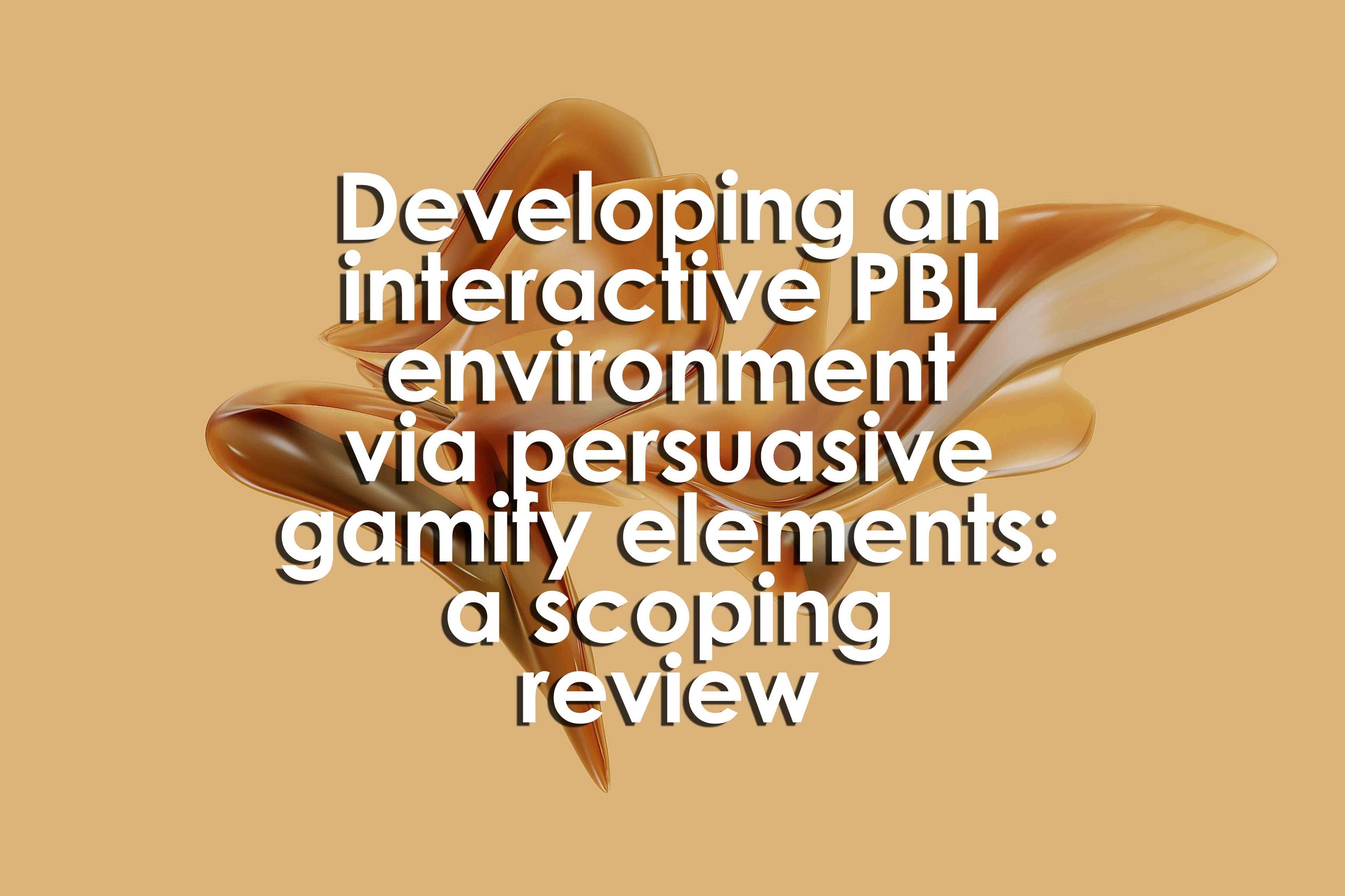Developing an interactive PBL environment via persuasive gamify elements:
Developing an interactive PBL environment via persuasive gamify elements:
Developing an interactive PBL environment via persuasive gamify elements:
a scoping review
By Azril Shahreez Abdul Ghani, Ahmad Fuad Abdul Rahim, Muhamad Saiful Bahri Yusof and Siti Nurma Hanim Hadie
Abstract
“The application of gamified elements to PBL to promote student engagement has not been systematically described. Hence, we conducted a review based on Arksey and O’Malley’s five-stage scoping review framework, involving research question identification, relevant study identification, study selection, data charting, and result collating and reporting. We searched three databases using five search terms combined with a Boolean operator: “problem-based learning” AND “persuasive OR gamify OR gamification OR game”. The initial pool of 5532 sources was evaluated according to the eligibility criteria, and 14 original articles were selected for the final data extraction. A content analysis was performed, and several persuasive gamification elements for PBL were identified. The results were reported using the Preferred Reporting Items for Systematic Reviews and Meta-Analyses (PRISMA) flow diagram. The analysis unearthed six main categories of persuasive gamification elements, which have been proven to be effective in the achievement of learning outcomes: high-fidelity simulation, inquisitive exploration, collaborative learning, interactive instruction, guidance and feedback, and rewards. These findings highlight the persuasive gamify elements that can be incorporated to support the active learning and engagement of students in PBL, thus preparing them to be lifelong, self-directed learners.”
Reference
Abdul Ghani, A., Abdul Rahim, A., Yusoff, M., & Hadie, S. (2022). Developing an interactive PBL environment via persuasive gamify elements: A scoping review - research and practice in technology enhanced learning. Retrieved November 3, 2022, from https://link.springer.com/article/10.1186/s41039-022-00193-z
Keyword
Problem-based learning, gamification, active learning, engagement, persuasive gamification, research

